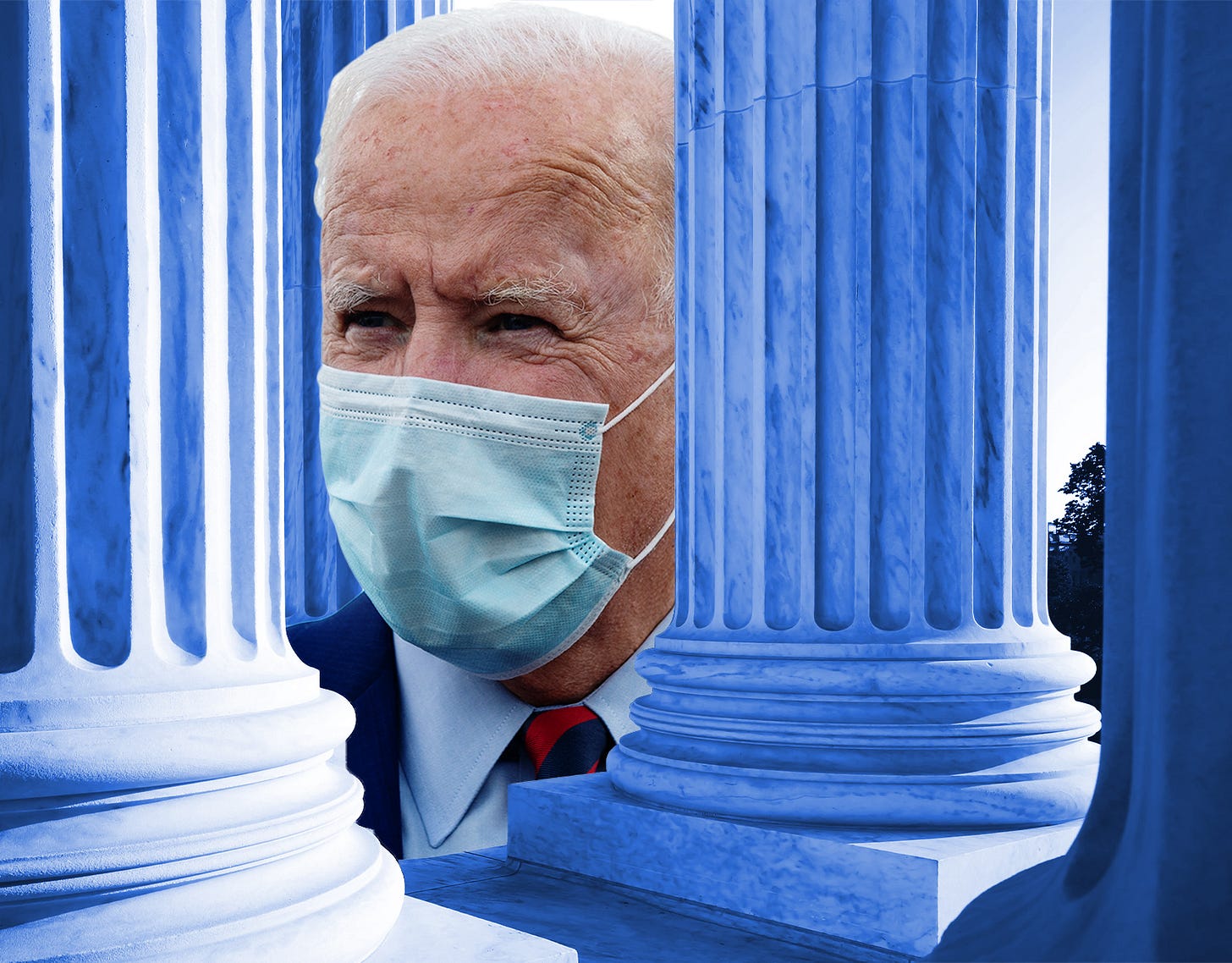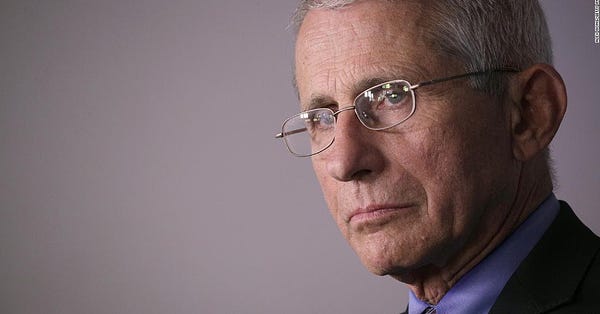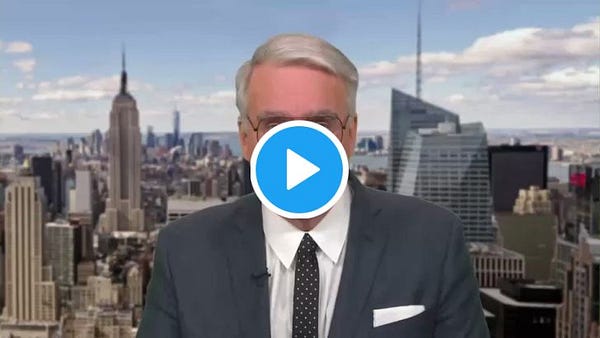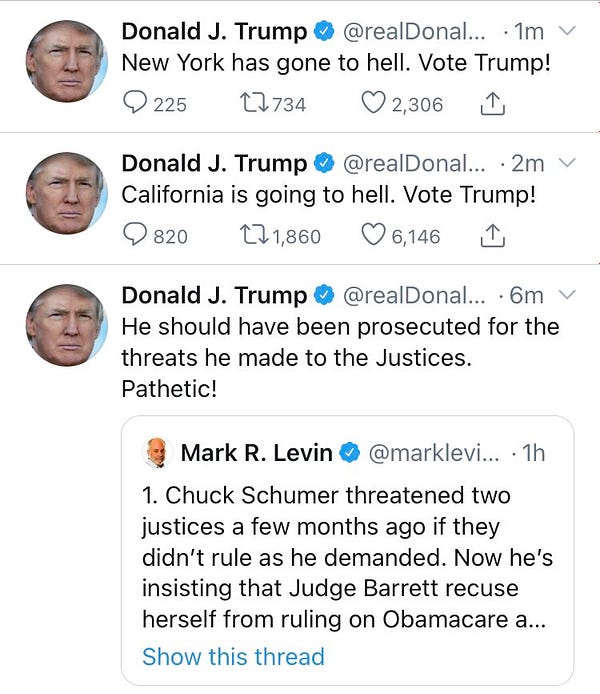Super-spreader events, Superman t-shirts, the coveted Taliban endorsement, a Supreme Court confirmation hearing, devastating new polls for TrumpWorld, and the End of the Faucian Bargain.
Happy Monday.

Welcome to the Countdown Journal. There are 22 days until Election Day, and then 78 days until the Inauguration.
The Senate GOP is upacking its by-any-means-possible strategy today, putting the nomination of Amy Coney Barrett on track for a confirmation vote the week before the election.
But over the weekend, the media’s focus was on Joe Biden’s continuing attempts to dodge the question of whether he supports court-packing. The question dominated weekend Twitter: Biden’s refusal to answer was “unacceptable,” “disqualifying,” “outrageous,” and for some folks reason enough to sit out the election. Senator Ben Sasse called Biden’s refusal to say whether he would support adding seats to the Supreme Court “grotesque.” CNN’s Jake Tapper called Biden’s refusal “bizarre.”
Was it?
Let’s stipulate that Biden’s handling of this has been sub-optimal. Nothing feeds a frenzy like transparently dodging a question. But let’s also stipulate that this isn’t likely to make a difference in the election and that much of the faux indignation is indeed, faux.
Because punditry abhors a vacuum, the whole does-he-doesn’t-he support court packing has come to fill the role that her-emails did four years ago.
Here are Biden’s choices:
(1) He can endorse court-packing (adding new justices by legislation). This would :
overshadow every other issue in the campaign
represent a flip-flop from his previous opposition to the idea
set the stage for a culture war battle that would consume the early months of his administration (and one that he might well lose)
(2) He can declare his opposition to adding justices. This would:
Anger and/or demoralize some of his base in the final days of the campaign
Surrender his negotiation position by giving up what small leverage he has to discourage bad behavior by the GOP and SCOTUS
(3) Continue to dodge, which would:
feed Twitter outrage
annoy the media
make him look weaselly
You can see why he has so far chosen (3). But Tim Alberta makes a modest suggestion:

That’s still a sort of non-answer, but it is definitely better than no, voters don’t “deserve” to know.
The odd thing about the whole controversy is that Biden’s position really isn’t that great of a mystery. He has repeatedly said he doesn’t support court-packing. Via NPR.
"I'm not prepared to go on and try to pack the court, because we'll live to rue that day," he told Iowa Starting Line early in the primary race last year. A few months later, during a Democratic primary debate, Biden once again rejected the idea. "I would not get into court packing," Biden said. "We add three justices. Next time around, we lose control, they add three justices. We begin to lose any credibility the court has at all."
And this is what he told the New York Times editorial board:
JW: Speaking of those other candidates, several of them have proposed major structural reforms to our government and to our democracy. These include abolishing the Electoral College, expanding the size of the Supreme Court, setting term limits for justices, abolishing the legislative filibuster. Which, if any of these, do you support?
None.
JW: Why not?
Because that structural change requires constitutional amendments. It raises problems that are more damaging than the problem that exists. We’re in a situation where the reason they gave judges lifetime tenure, you know why.
Maybe that has all changed in the wake of RGB’s death and Republican plans to push through her successor before the election. But that seems unlikely, given the theme of his campaign, which stresses a return to normalcy, not a retaliatory nuclear strike in the cultural war over the courts.
The other theory is that Biden would be too weak to withstand the demands of the Left. But (at this point) it’s hard to imagine either Nancy Pelosi or Chuck Schumer asking a President Biden to put his agenda on hold to make a quixotic charge on the Court.
(Caveat: There’s always the possibility that the next few weeks/months might radicalize Democrats to the point where the pressure becomes irresistible. I’ll have more to say about that later.)
Over the weekend, the fight over the court devolved into a battle over the nomenclature of “court-packing,” with Biden and some Democrats using the term to describe filling open seats. This provoked a new round of outrage over the “Orwellian” distortion of language.
But this is another issue where partisans seem to have switched sides. Back in 2013, Senator John Cornyn had explicitly referred to President Obama’s appointments to the D.C. Circuit Court of Appeals as an “attempt to pack” the court.
And speaking of norms. Back in October 2016, when Hillary Clinton was leading in the polls, National Review ran an article arguing that: “The Senate should decline to confirm any nominee, regardless of who is elected. More than that, it is time to shrink the size of the Supreme Court.”
But when it comes to the question of which questions candidates should answer, there is a rather striking asymmetry.
Put this in perspective. Yes, Biden is clearly avoiding answering this question. But Trump has repeatedly refused to answer questions about his willingness to accept the results of the election, or a peaceful transfer of power.
But that’s hardly all of it. He’s also refusing to answer basic questions about his medical condition, his finances, and his second-term agenda (if there is one).
So, at a minimum, the same folks who insist that the voters have a right to hear Biden’s position on court packing ought to ask Trump to answer some questions of his own.
Here’s a short, and by no means exhaustive, list:
Will you fire the FBI director after the election?
Will you order the DOJ to indict political opponents? Which ones?
Who do you owe that $400 million to?
Will you withdraw from NATO in a second term?
Will you issue pardons after the election? Paul Manafort? Members of your family?
Will you rule out a self-pardon?
What executive orders would you issue to circumvent Congress?
How do you intend to fund Social Security?
What is your health care plan?
Will you still claim success when the pandemic death toll hits 300,000?
You can probably come up with a dozen more….
BTW, as this whole thing escalates, it might be worth noting that RBG herself took a dim view of court-packing.
"Nine seems to be a good number. It's been that way for a long time," she said, adding, "I think it was a bad idea when President Franklin Roosevelt tried to pack the court."
The term-limits proposal doesn't worry Ginsburg because she sees it as unrealistic, given that the Constitution specifies life terms for federal judges and because, as she puts it, "Our Constitution is powerfully hard to amend."
"If anything would make the court look partisan," she said, "it would be that — one side saying, 'When we're in power, we're going to enlarge the number of judges, so we would have more people who would vote the way we want them to.' "
That impairs the idea of an independent judiciary, she said.
"We are blessed in the way no other judiciary in the world is," she noted. "We have life tenure. The only way to get rid of a federal judge is by impeachment. Congress can't retaliate by reducing our salary, so the safeguards for judicial independence in this country, I think, are as great or greater than anyplace else in the world."
“Bonkers” doesn’t cover it. Via the NYT.
In several phone calls last weekend from the presidential suite at Walter Reed National Military Medical Center, Mr. Trump shared an idea he was considering: When he left the hospital, he wanted to appear frail at first when people saw him, according to people with knowledge of the conversations. But underneath his button-down dress shirt, he would wear a Superman T-shirt, which he would reveal as a symbol of strength when he ripped open the top layer. He ultimately did not go ahead with the stunt.
ICYMI: This blockbuster new report on the depth and breadth of Trump’s corruption.
But Mr. Trump did not merely fail to end Washington’s insider culture of lobbying and favor-seeking.
He reinvented it, turning his own hotels and resorts into the Beltway’s new back rooms, where public and private business mix and special interests reign….
But once Mr. Trump was in the White House, his family business discovered a lucrative new revenue stream: people who wanted something from the president. An investigation by The Times found over 200 companies, special-interest groups and foreign governments that patronized Mr. Trump’s properties while reaping benefits from him and his administration. Nearly a quarter of those patrons have not been previously reported.
The End of the Faucian Bargain.


The undecideds are breaking for Biden.
With three weeks to go, this is the development to watch. Yesterday’s big ABC/Wapo poll gives Biden a massive 12 point national lead and a 17 point edge in trust on handing the pandemic.
Four years ago, voters who decided in the presidential campaign’s waning days broke decisively for Trump, a political newcomer, delivering him a shock victory. This year, evidence suggests there are few who have yet to make up their minds. But many of those who had been on the fence appear to be coming down on Biden’s side….
Among voters who backed a third-party candidate in 2016, for instance, about half — 49 percent — currently support the Democratic nominee this time around. Just over a quarter — 26 percent — say they intend to choose Trump, according to a recent Pew Research Center survey.
Speaking of undecideds, Tim Miller wrote about a recent RVAT survey that asked undecided voters an open-ended question, asking why they weren’t backing Trump.
The result?
Two-thirds of those who had an answer to that question said he’s a racist/arrogant/unintelligent jerk who “doesn’t represent the country well,” “lies,” and is “unfit to do the job.”
Some verbatims, just for your enjoyment’s sake:
“He is a horrible human being”
“He is incredibly rude”
“Terrible representative for our country”
“He’s sexist and racist”
“He’s an idiot”
“His arrogance”
“Slimebag”
Remember these are the undecided voters.
But…. 2016!


A tsunami of cash. Lindsey Graham’s challenger raked in a staggering $57 million in the last quarter, “the highest quarterly fund-raising total for any Senate candidate in U.S. history and part of a flood of Democratic money remaking the battle for control of the Senate.”
For your listening pleasure.
Friday’s podcast with Bill Kristol is already our most downloaded episode… ever. Check it out to find out why.

Bill Kristol on Trump's End Game: On today's Bulwark Podcast, Bill Kristol joins Charlie Sykes to discuss the 2020 election, the down-ballot electoral woe...
There are 22 days to go.
Quick Hits
1. The Senate GOP Tries to Bail
Josh Kraushaar in the National Journal:
Here’s the clearest sign that Democrats hold a clear advantage in their efforts to retake the Senate: Embattled Republican senators, most of whom proudly embraced Donald Trump through thick and thin, are suddenly running away from the president as he craters in the polls. The growing GOP panic, even among red-state senators, is a telltale sign that Majority Leader Mitch McConnell feels his majority slipping away.
2. Our Abiding Quarrel with Russia
Brian Stewart reviews two recent books in today’s Bulwark:
In a remarkable volte face, a quarter-century after the free world’s triumph in the Cold War, a Republican standard-bearer had become Russia’s preferred candidate. In his first term, Trump has discredited American institutions, divided the social order, and diminished the nation that has been indispensable to the liberal order.
Little wonder that at this hour Russian intelligence services are working tirelessly to perpetuate the Trump presidency. Americans preparing to vote the same way in November should ask themselves what could possibly justify contributing to another election result that would be celebrated in the Kremlin with champagne.
3. Bret Stephens on 1619
ICYMI: Gutsy move to take on deeply flawed project by his own paper. Brace for impact.
For obvious reasons, I’ve thought long and hard about the ethics of writing this essay. On the one hand, outside of exceptional circumstances, it’s bad practice to openly criticize the work of one’s colleagues. We bat for the same team and owe one another collegial respect.
On the other, the 1619 Project has become, partly by its design and partly because of avoidable mistakes, a focal point of the kind of intense national debate that columnists are supposed to cover, and that is being widely written about outside The Times. To avoid writing about it on account of the first scruple is to be derelict in our responsibility toward the second.
All the more so as journalists, in the United States and abroad, come under relentless political assault from critics who accuse us of being fake, biased, partisan and an arm of the radical left. Many of these attacks are baseless. Some of them are not. Through its overreach, the 1619 Project has given critics of The Times a gift.
Cheap Shots
1. The Taliban Endorsement


2. Trump’s Closing Argument?
3. Utterly deranged
Not exactly breaking news, Keith Olbermann has taken up residence in Crazytown.
“So, let us brace ourselves,” he continued. “The task is twofold: the terrorist Trump must be defeated, must be destroyed, must be devoured at the ballot box, and he and his enablers and his supporters and his collaborators and the Mike Lees and the William Barrs and the Sean Hannitys and the Mike Pences and the Rudy Giulianis and the Kyle Rittenhouses and the Amy Coney Barretts must be prosecuted and convicted and removed from our society while we try to rebuild it and to rebuild the world Trump has nearly destroyed by turning it over to a virus.”


Deep Thoughts
1. Fixing the Big Tech Bad Apples
Yevgeny Simkin in today’s Bulwark:
That’s what The Social Dilemma is missing. An epilogue that says “here are twenty ideas that would fix 80 percent of the Bad Apples’ problems. Write your members of Congress and tell them to pass this message along.”
The time has come to stop wringing our hands and clutching our pearls and put forth proposals for actionable, implementable, workable, technological improvements to these platforms.
2. Make Anti-Communism Great Again
Daniel J. Samet and Shay Khatiri in this morning’s Bulwark:
In short, what’s missing from the public discourse about the emerging new cold war is what animated the first: an understanding of the contrast between liberal democracy and communism.
Instead of glossing over Chinese communism, the United States should make it a focal point of the geopolitical contest in which we find ourselves. The U.S. relationship with China is very different from the historical U.S. relationship with the Soviet Union—not least in terms of economic enmeshment. At its peak, in 1979, U.S.-Soviet two-way trade reached just $4.5 billion ($16 billion in today’s dollars). In 2018, U.S.-China two-way trade reached about $740 billion.
But like the long U.S. struggle with the Soviet Union, our competition today with China is in part a struggle between two ideologies.






